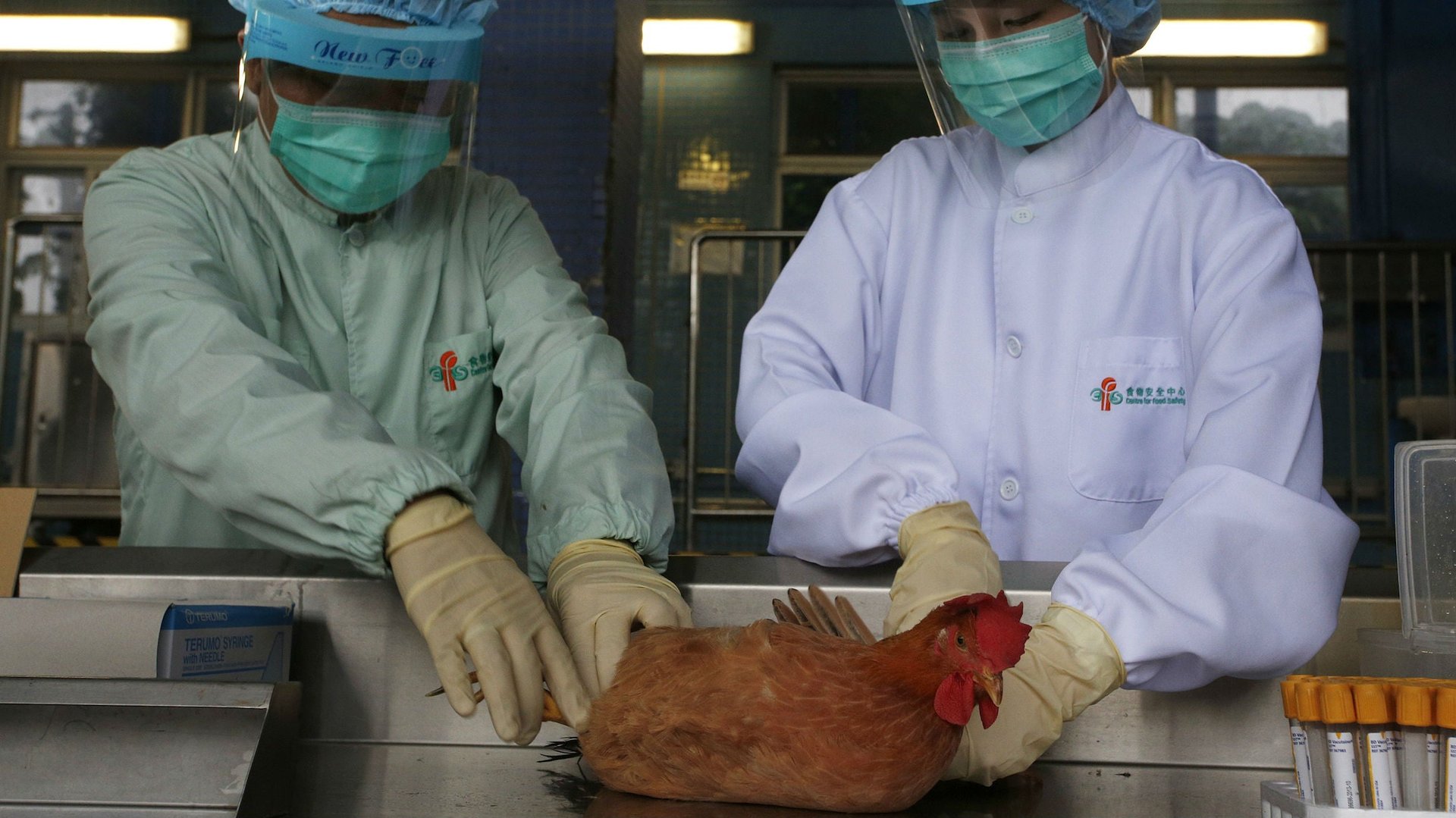Is it time to stop worrying about a global bird flu pandemic?
Officials in the eastern Chinese province hit hardest by a recent outbreak of bird flu are optimistic the crisis has passed. Authorities in Zhejiang province have called off an emergency response to the mysterious and sometimes fatal strain of H7N9, according to a government statement (link in Chinese) released today.


Officials in the eastern Chinese province hit hardest by a recent outbreak of bird flu are optimistic the crisis has passed. Authorities in Zhejiang province have called off an emergency response to the mysterious and sometimes fatal strain of H7N9, according to a government statement (link in Chinese) released today.
Zhejiang, home to 46 cases of bird flu, had previously slaughtered thousands of birds and livestock, and ordered residents to avoid contact with live poultry, wash their hands often, and take traditional Chinese herbs. Last week, Shanghai, where 33 bird flu cases had been confirmed, also lifted its emergency alert.
The passing of the crisis would be good news not just for Chinese citizens. Epidemiologists have long worried that bird flu could morph into a virus contagious between humans, which could give rise to a global pandemic. Experts at the World Health Organization (WHO) and other institutions have said that the possibility of human-to-human transmission in China’s recent outbreak is not confirmed but can’t be ruled out either. A total of 131 people in China have caught H7N9, and 36 people have died from it, according to the WHO.
But shutting down live poultry markets across the country seems to have slowed the outbreak’s spread. Warmer temperatures may also be helping. Zhejiang health officials said there have been no new cases of the virus over the past 28 days. They have also now released dozens of people who were being examined because of their contact with H7N9 patients in the province.
Yet even if the outbreak is tapering off in China, there has been at least one confirmed case of it spreading beyond the mainland. Earlier this month, authorities in Taiwan confirmed that a 53-year-old man who had traveled to Suzhou province in China on business had H7N9.